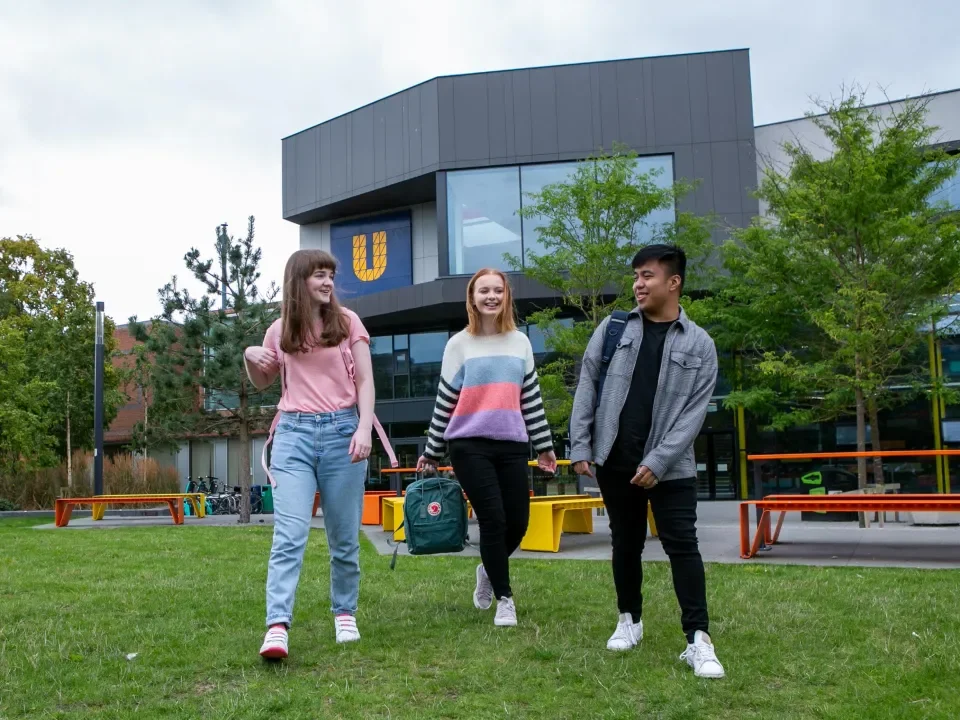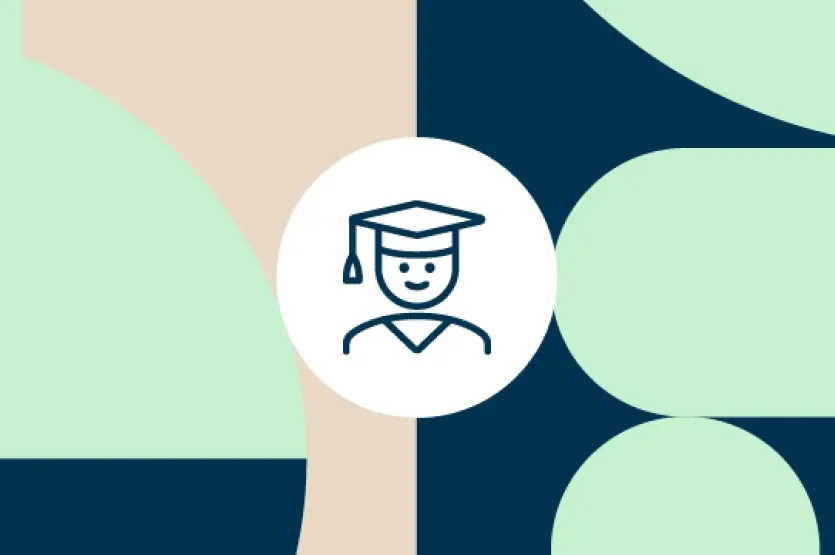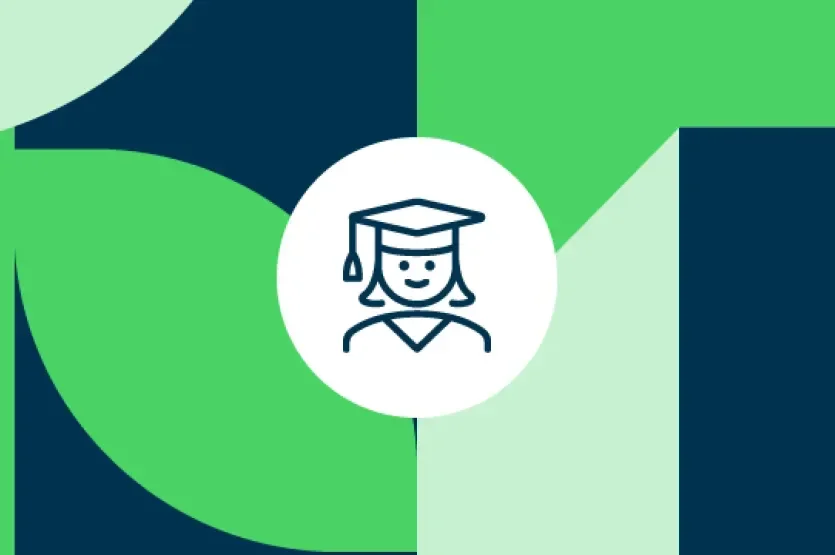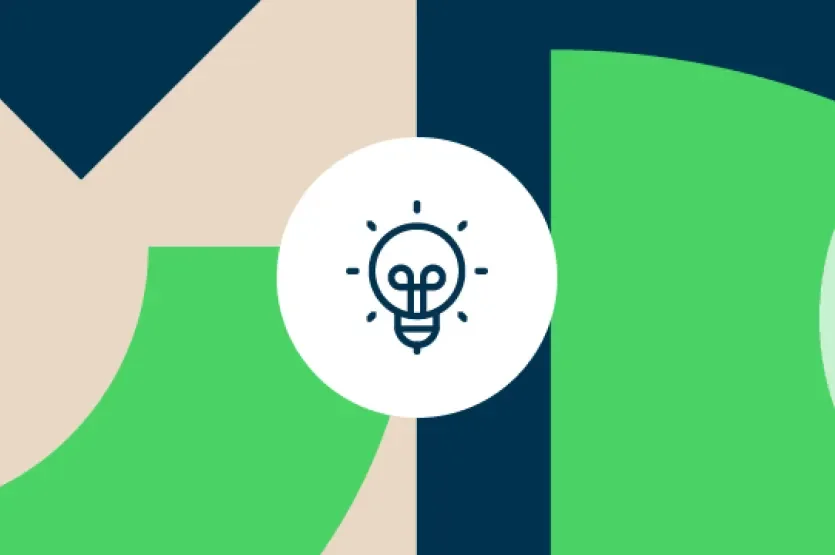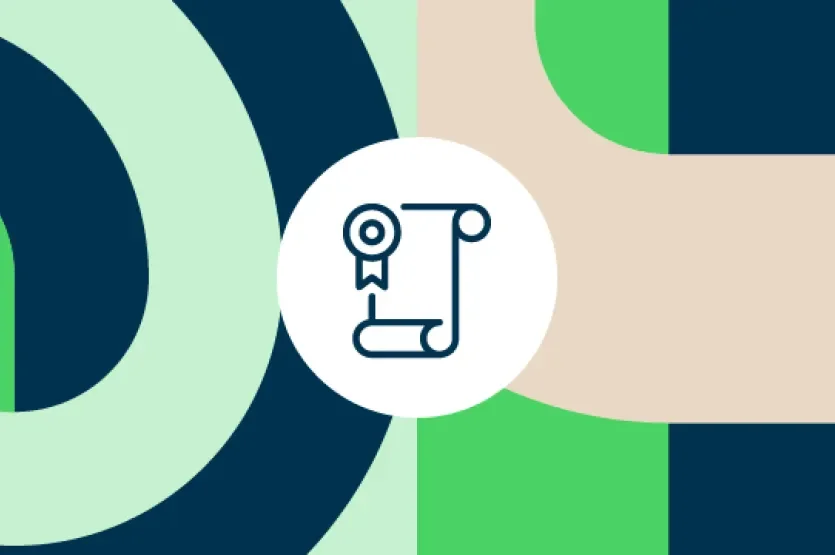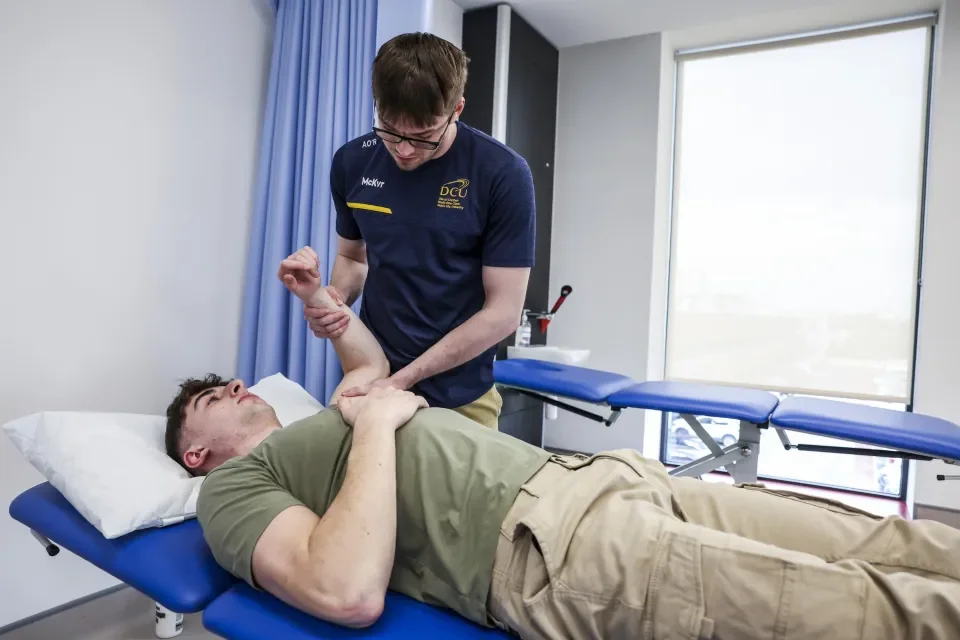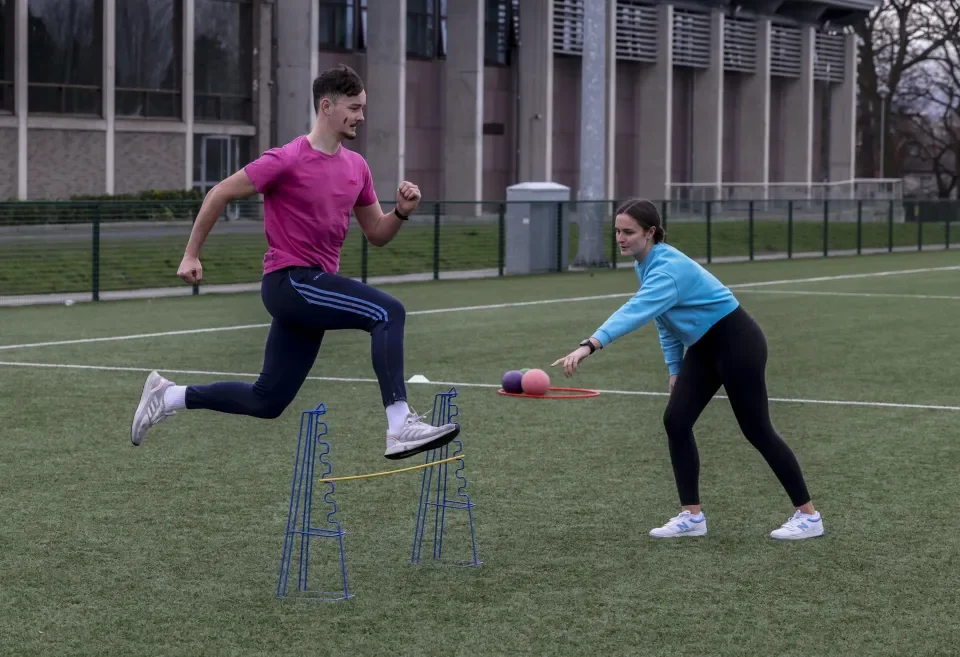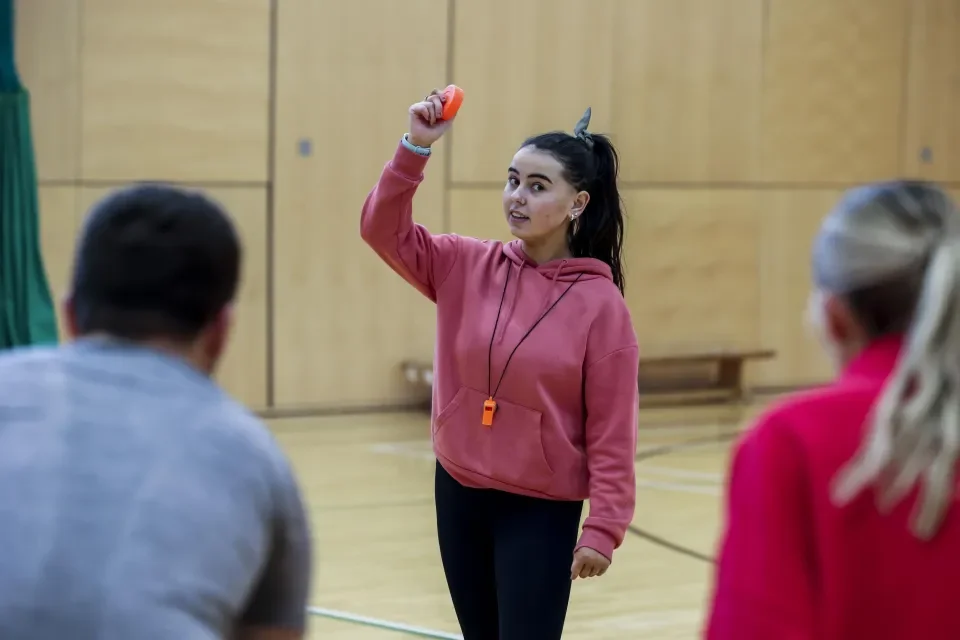Overview
Are you passionate about sport? Can you imagine supporting an elite athlete to the heights of their career or helping to coach a team to be among the best in the world? That’s exactly what many of our Sports Science and Health graduates do, while many others make a massive impact in the community, helping people of all ages to enjoy and benefit from sport and exercise.
During this course, you’ll learn how to enhance health and human performance, and how to advocate for and champion a healthy, educated and active society. You’ll encounter a range of teaching methods, including practical sessions, and develop key skills you can use in any career, including creative and critical thinking.
Understand the possibilities
You’ll study anatomy, behaviour change, coaching, nutrition, physiology, psychology, sociology and more, understanding these topics as they apply to people of all ages and in contexts from general health through to elite sport performance. To gain on-the-ground experience, you’ll do a six-month INTRA programme work placement in third year.
As a Sport Science and Health graduate, you could go on to work as a performance analyst, performance coach, laboratory technician or health promotion officer. Alternatively, you could go on to a masters or professional doctorate in elite sport, health promotion, strength and conditioning, nutrition, psychology, physiology, physiotherapy or advanced entry medicine.
Why DCU
DCU People

DCU topped most of the university rankings for Sport Science and Health, making it an easy decision for me. As an athlete myself, I wanted to work in a practical area of professional sport.
Read more about Orla Smith
Careers & Further Options
Careers
You may opt for further study in related areas, including physiotherapy, nutrition, clinical exercise, strength and conditioning, coaching and education.
Our INTRA programme provides six months of paid, relevant work experience to students. This will give you a genuine competitive edge with employers when you graduate.
The course provides a broad foundation of knowledge, skills and experience for those wishing to pursue employment in:
- Sport (e.g. coaching, sport development, sport science support, sports industry)
- Health (e.g. health promotion, cardiac rehabilitation, corporate health advisor)
Several graduates from the course are employed as sports development officers at local, regional and national levels. They are involved in a variety of roles, including the development and implementation of programmes and strategies linked to increasing participation, improving skills, coaching development and improving the standards of coaching practice.
There are growing opportunities for graduates to gain employment as sport coaches. Coaches are required to have the capacity to improve and develop individual and team performances. Graduates who are employed in coaching have a broad understanding of all aspects of sports performance in a particular sport and, in addition to their degree qualifications, will normally hold coaching qualifications in that sport.
Graduates of the course also work as exercise consultants on specialist programmes in the gymnasium, sports or fitness clubs to help their clients to meet their goals and administer appropriate methods of assessment. After compiling and interpreting the results of this assessment, they design a suitable exercise or training programme. This could be of a technical, physiological or psychological nature.
The course will also provide you with opportunities for further study in a wide variety of related specialist areas, including physiotherapy, nutrition, clinical exercise, strength and conditioning, and coaching and education.
There are also opportunities for postgraduate study.
- Coaching
- Health (e.g. health promotion, corporate health advisors, exercise specialists)
- Recreation - public and private sector
- Education/Physical Education
- Medicine
- Nutrition/Dietetics
- Physiotherapy
- Occupational therapy
- Graduate studies – taught and research
- Business
DCU graduates are highly sought after by employers. Our Graduates work in environments ranging from large multinationals to SMEs, family businesses and start-ups across every sector.
DCU Careers Service has a number of learning and development initiatives in place for our students, giving them the skills they need for a successful career path.
Entry Requirements
In addition to the general entry requirements for admission to the university the following entry requirements apply
Minimum of O4 or H6 in Mathematics and minimum of O4 or H6 in one of Physics, Chemistry, Biology, Physics with Chemistry or Agricultural Science
In addition to the general entry requirements for admission to the university the following entry requirements apply
GCE A Level D or GCE AS Level C or GCSE C Mathematics and GCE A Level D or GCE AS Level C or GCSE C in one of Physics, Chemistry, Biology, Physics with Chemistry or Agricultural Science
Please visit our Admissions webpage for details on course requirements or how to apply to DCU.
Please visit our QQI FET webpage for details on DCU courses, open days, campus tours or school visits.
To apply to DCU, please visit www.cao.ie.
Mature entry is a competitive process. Applicants must demonstrate:
- a genuine interest in the programme(s) they are applying for
- academic experience and competency in their chosen field of study
- an ability to engage and succeed on the programme
All applicants must complete a statement of interest to be considered for the mature application route.
For further guidance on the mature application process please see the CAO Website
Additional Criteria
This programme requires evidence of competency in Mathematics and one of Physics, Chemistry, Biology, Physics with Chemistry or Agricultural Science, which would equate to a O4/H6 in these subject areas. This requirement is essential for this programme. Applicants can show their strength in this through formal examinations e.g. school leaving examinations, QQI-FET, access programmes, or other third level qualifications. If applicants don’t have any relevant examinations, they may be able to meet the requirements through their work and life experience, applicants must give examples of this experience to demonstrate their competency in these areas in their personal statement.
Applicants that have completed at least one year of study at NFQ Level 7 or 8 at another institution may apply to continue their studies on a similar programme at DCU. There should be substantial overlap in content between the two programmes to be considered for a transfer. The specific criteria for entry may vary for each programme. Results and other supporting documentation must be submitted to CAO by the closing date of 1st July. This is a competitive application process for a small quota of advanced entry places, so early application is advised. Submission of an application does not guarantee an offer. Offers are made on a rolling basis until all places are filled. Please note: Applicants should also consider applying through the appropriate route for first year entry to the programme they are interested in. This application process is only for advanced entry.
International candidates are expected to have educational qualifications of a standard equivalent to those outlined above. In addition, where such candidates are non-native speakers of the English language they must satisfy the university of their competency in the English language. For further information on international applications click here.
Course Structure
- Physiology for Health Sciences
- Chemistry
- Psychology
- Sport and Exercise Physiology
- Motor Control and Learning
- Performance Analysis in Sport
- Introduction to Exercise Science
- Conditioning Science: Theoretical Approaches
- Applied Health Related Fitness
- Physics
- Adapted Physical Activity
- Introduction to Research Methods
- Sport and Exercise Nutrition
- Conditioning Science 2
- Sport Psychology
- Anatomy and Functional Anatomy
- Integrated Sport and Exercise Physiology
- Genetics and Health
- Sociology of Sport
- Sport and Exercise Biomechanics 1
- Physical Activity Psychology
- Conditioning Science 3: Delivering Performance
- Clinical Exercise Physiology
- Coaching and Inclusion Studies
- Applied Exercise and Health Psychology
- Injury and Illness in Athletics
- Sport and Exercise Biomechanics 2
- INTRA
- Clinical Exercise Physiology
- Research Methods
- Research Project
Year 4 Options (select two)
- Talent Development and Sports Systems
- Exercise as Medicine – Theory and Practice
- Advanced Laboratory Techniques in Exercise and Sport Science
- Business Planning
Fees and Funding
Fees
How To Apply
Applicants presenting EU School Leaving/FETAC Level 5 examinations: Apply through the Central Applications Office (CAO) by 1st February or 1st May
To apply for this programme:
Candidates should apply directly here. Here's a quick step by step guide if you need help with your application.
Please provide
- Academic Transcripts for each and every year of study with English translation, if applicable.
- If applicable, provide evidence of competence in the English language as per DCU entry requirements.
Applications are accepted on an ongoing basis up to 1st July. All Non-EU candidates are advised to apply early, as places are limited.
All mature applicants apply through the CAO by 1st February. For further information and for special application procedures for mature students, please click here
EU applications are made via the CAO Advanced Entry route which opens on the 05th November to the 1st July.
Please see Application Procedures or E-mail ugadmissions@dcu.ie.
Candidates submitting EU examination results are required to apply through the CAO at www.cao.ie.
Candidates submitting non-EU examination results are required to apply directly here.
Life On Campus
At DCU, our students can expect a unique campus experience. We are known for our excellent teaching and learning facilities, our active clubs and societies, and our great social and sporting facilities. All this makes DCU an exciting place to be.
DCU has three academic campuses; Glasnevin, St. Patrick’s and All Hallows (both in Drumcondra), all close to Dublin City centre.
They can be reached by public transport, Dublin Bus and Bus Éireann, with our Drumcondra campuses a ten minute walk from Drumcondra Train Station. Glasnevin is a 20 minute walk from St Patrick’s and All Hallows. They are also linked by Dublin Bus.
Each campus has a library (O’Reilly, Cregan and Woodlock Hall), study spaces, restaurants, and on-campus residencies. There are sports facilities on Glasnevin and St. Patrick’s, and there is a dedicated sports campus, St Claire’s, located near Glasnevin on the Ballymun Road.
DCU’s 19,000 students have access to exceptional teaching and learning facilities across our three academic campuses.
These include modern learning theatres, research centres, a new media and TV studio, radio/podcast studios, computer suites and advanced labs in the areas of Languages, Engineering, Physics, Chemistry and Biotechnology, as well as a Sports Performance centre and a training hospital ward. In 2021, we opened our first virtual reality ‘Leadership Lab’, which is located in our Business School.
We continue to improve and update our facilities. For example, construction of a new world-class STEM facility is underway on the Glasnevin campus. With capacity for an extra 3,000 STEM students, this facility will advance DCU’s international reputation for excellence in science and health, computing and engineering disciplines.
Studying in DCU isn’t just about course work. The university is rich in student life and activities.
There are more than 140 clubs and societies for students in DCU, with ‘Clubs & Socs’ days taking place on both the Glasnevin and Drumcondra campuses at the start of the academic year. They span everything from rugby to rock climbing, anime to jazz.
For many students, sport is an important part of the DCU experience. DCU’s Sports Complex boasts a 25 metre swimming pool, fitness centre gym, all-weather pitches and squash courts, as well as soccer, GAA and rugby pitches. DCU Dóchas Éireann, the university’s GAA club, is the largest third level Gaelic Games club in the country. Meanwhile, DCU Athletics has been Ireland’s highest achieving university club for many years. And DCU has dozens of other clubs to get involved in, from Archery to Weightlifting.
The Glasnevin campus is home to our purpose built, state-of-the-art student centre, The U, which serves the needs of a rapidly growing student body. Here, you will find the Student Leadership and Lifeskills Centre, performing arts and cultural spaces for students and the wider community, and the Entrepreneurship and Innovation Hub. Also located on our Glasnevin campus is The Helix, our renowned performing arts centre.
On our St Patrick’s campus, we have the Java Student Hub, a vibrant, warm and welcoming space where students can meet for coffee, play music, use the projector to watch events, or just relax. The walls of the Java Hub were designed based on the cultural history of St Patrick’s Campus, including the special references to the notable sporting history and history of the arts.
We have a number of academic, professional and social supports for students.
Student Advice & Learning Skills Centre - Offers a wide range of supports and services to students and advice
The Writing Centre - drop-in writing workshops for students through the academic year
Maths Learning Centre - provides maths support for students of all ability levels with maths modules
Student Learning - facilitate the transition from passive to active learning for students at DCU, by teaching study skills, nurturing critical thinking and building student confidence.
Careers work with students to help them on their professional journey into graduate employment.
Our student support team offers a comprehensive support programme, helping students make that all important transition into university life and focusing on building confidence and skills which are key to success at third level.

DCU Glasnevin Campus
FAQs
What will I study during the Bsc in sport science and health (dc202)?
In this programme you will study Biology, Chemistry, Physics as well as some Mathematics.
The INTRA Placement in Sports Science and Health comes in the second semester of third year. While some paid placements are found and offered by the INTRA Office others students prefer to find their own. Placements take place in all aspects of sports science and a number of students go abroad each year. We have found that the INTRA placement helps guide the future career directions of many students and it is not uncommon for students to go back and work in the place they did their INTRA placement.
Is it possible to specialise in either sports science or health?
As you progress through the degree there are a variety of sports science, health and multi-disciplinary modules. Students specialise in a number of ways - where they do their INTRA placement, in the selection of their final year project and critically in the final year in the selection of specialist modules.
How applied is the bsc in sport science and health course?
The Sports Science and Health degree builds on scientific principles and during the first it year covers many of the sciences again. As you progress through the course it becomes more applied with significant modules in aspects such as Strength and Conditioning, Fitness, Coaching, Performance Analysis, Biomechanics etc. Anyone considering doing Sports Science and Health do need a good grasp and interest in scientific subjects.
Intra placements - are these found for you?
The INTRA Placement in Sports Science and Health comes in the second semester of third year. While some paid placements are found and offered by the INTRA Office others students prefer to find their own. Placements take place in all aspects of sports science and a number of students go abroad each year. We have found that the INTRA placement helps guide the future career directions of many students and it is not uncommon for students to go back and work in the place they did their INTRA placement.
What is the difference between AT&T and physiotherapy?
Physiotherapy: A more general programme.
Includes treatment of non-musculoskeletal illnesses such as: cardiac and respiratory illness, neurological conditions such as stroke, spinal cord injuries, and many other conditions.
Athletic Therapy and Training: Complete focus is on musculoskeletal injuries, their prevention, assessment, treatment and rehabilitation.
How detailed are the science subjects in the sports science course and would it be manageable if I didn't do biology/chemistry/physics for LC?
Students are required to complete a module in both chemistry and a module in physics in the first year of the ATT cand SSH courses. Students who have not completed this subject at LC will still be able to successfully complete the module as part of this course and there is additional support available.
Is DCU all one campus?
DCU is a multi campus university - the Glasnevin, St Patrick's and All Hallows campuses. The St Patrick's campus is where the Education courses are taught and some of the subjects from the BA Joint Honours degree. There is a 20-25 minute walk between the campuses but there are buses and bikes available to go between them also.
Click here to see maps of all of our campuses
If I'm studying on the St Patrick's campus, can I use the library and sports centre on the Glasnevin campus?
Yes, all facilities such as sports and accommodation are open for all DCU students to avail of.
Are there libraries in DCU and if they have wifi and work stations?
We have a brand new state of the art four floor library on our St. Patrick's Campus which complements the existing library on the Glasnevin campus. There is free wifi, work stations as well as desktop computers.
Does DCU provide accommodation?
DCU does have on-campus accommodation for undergraduate and postgraduate students, and you can find out more and apply via the Accommodation Office webpage.


